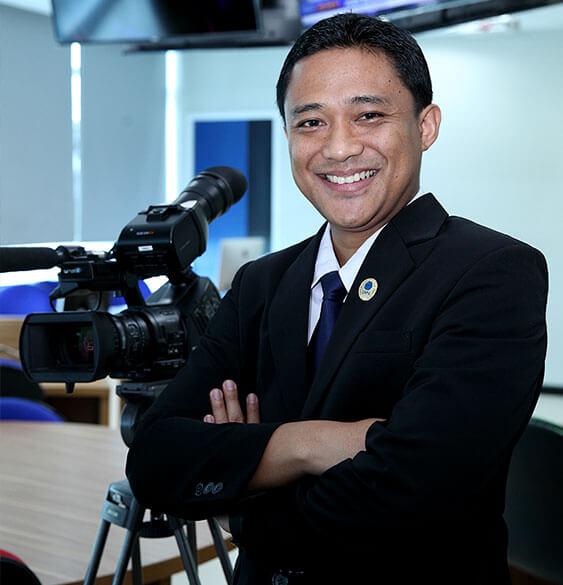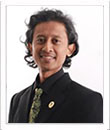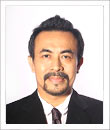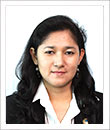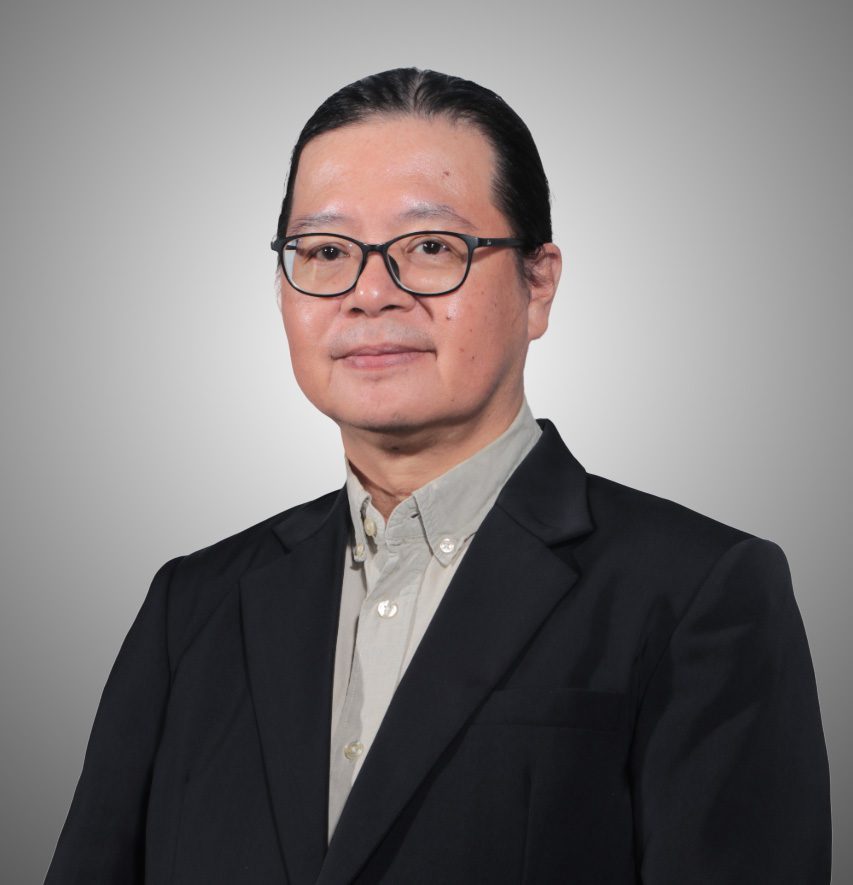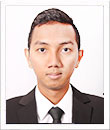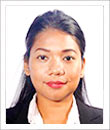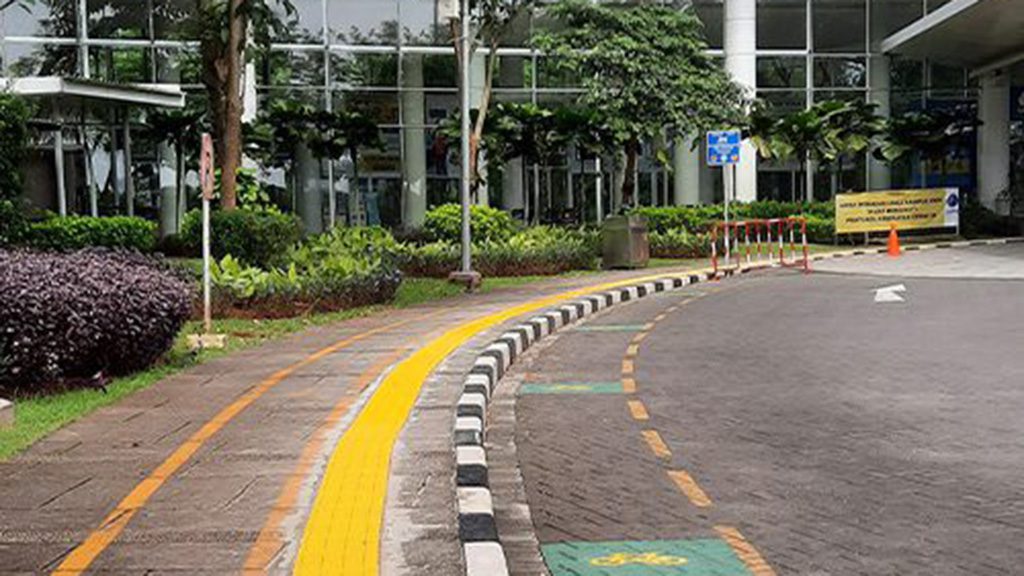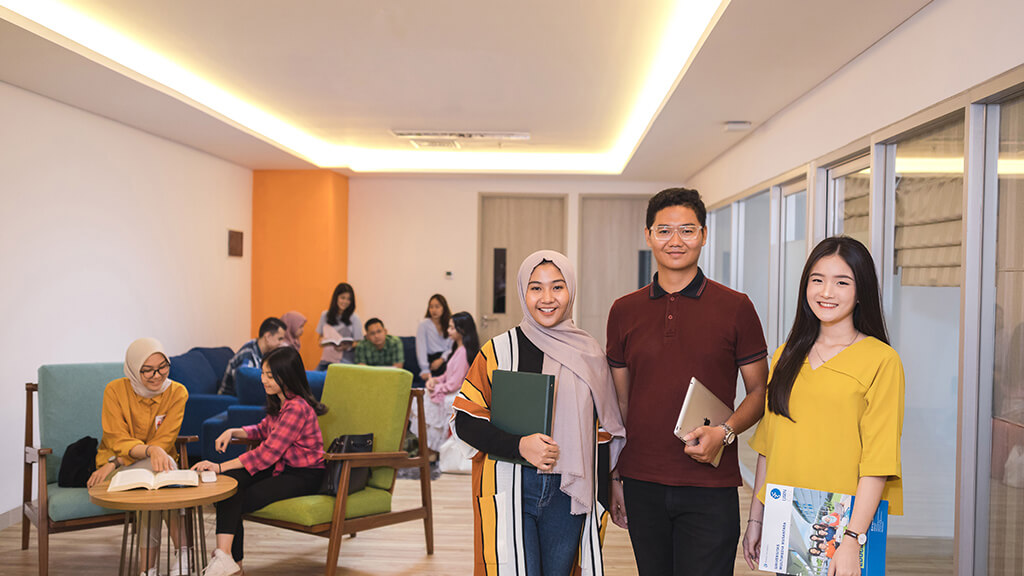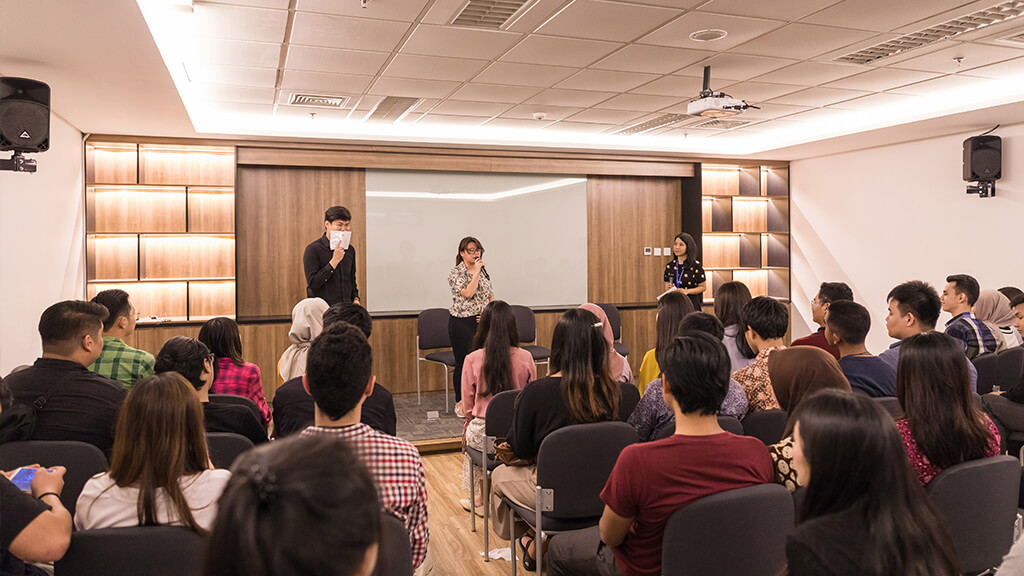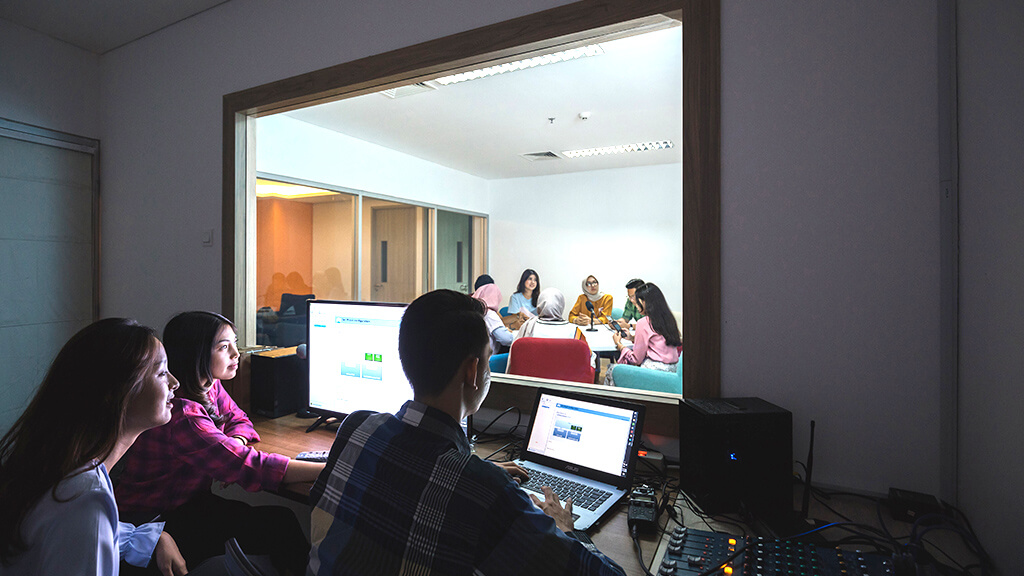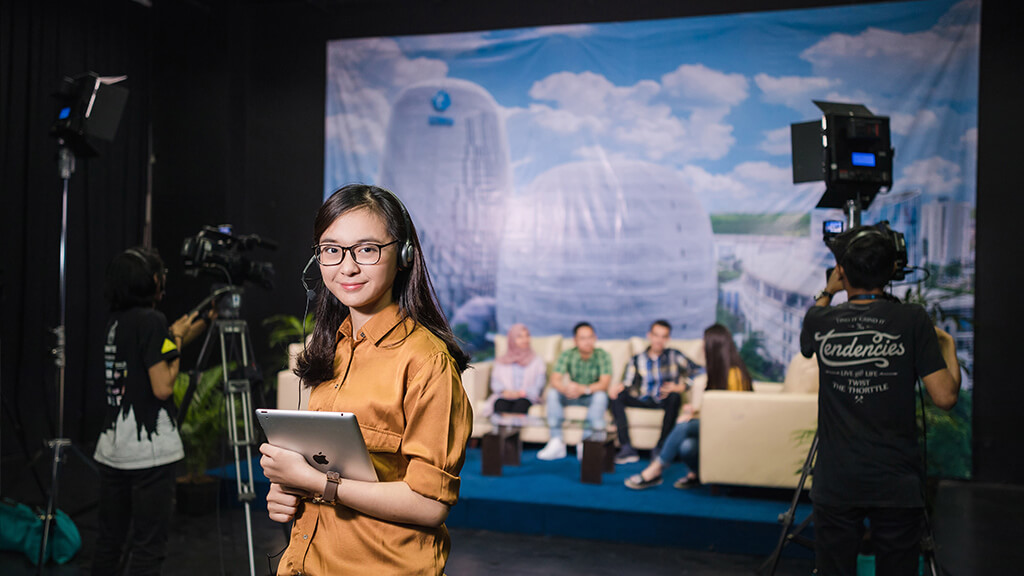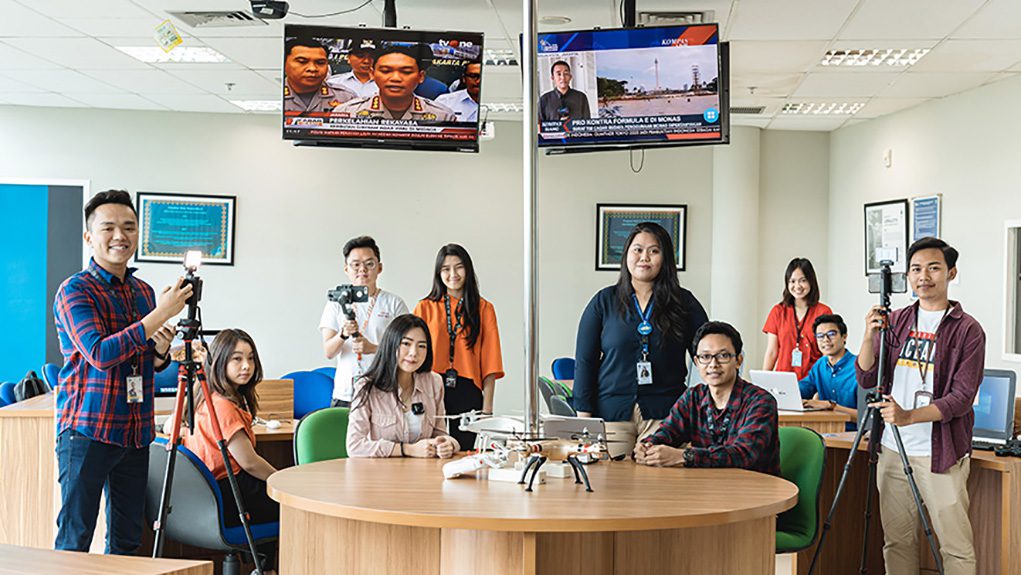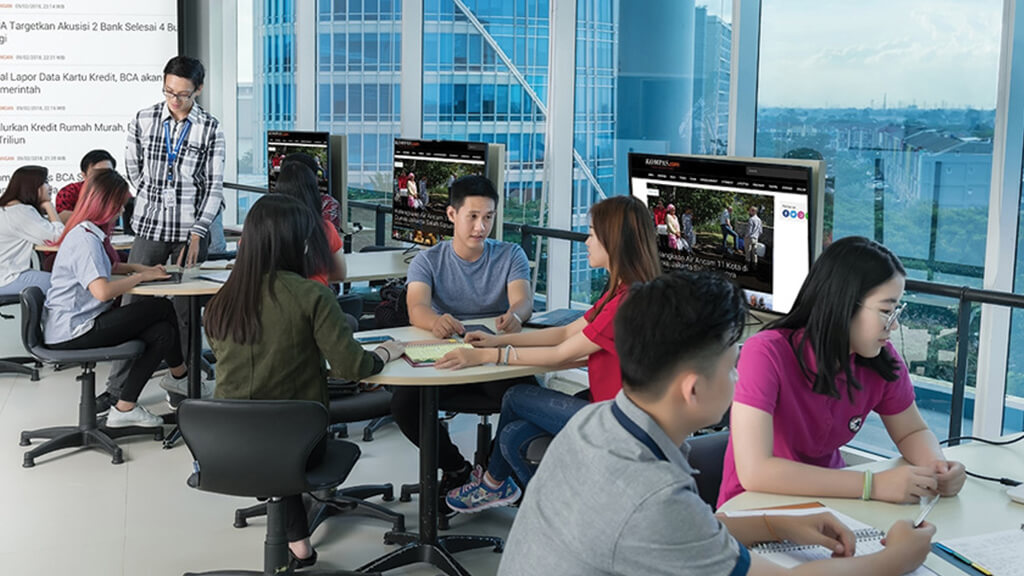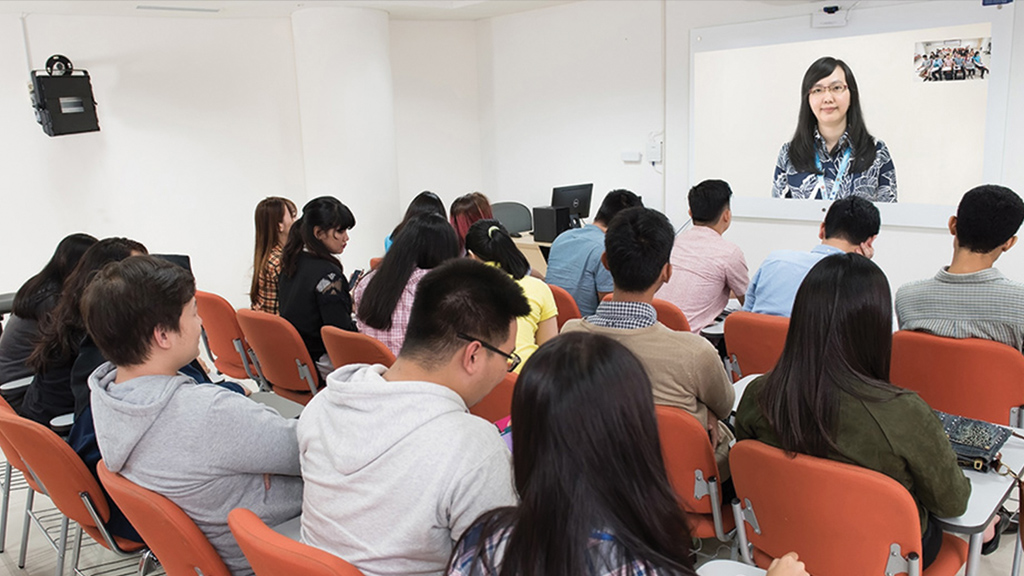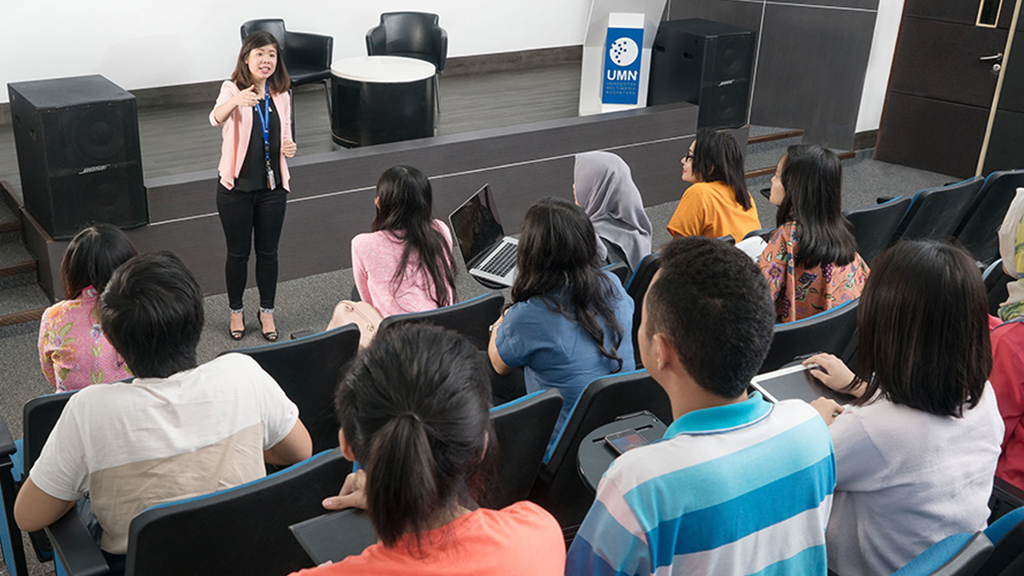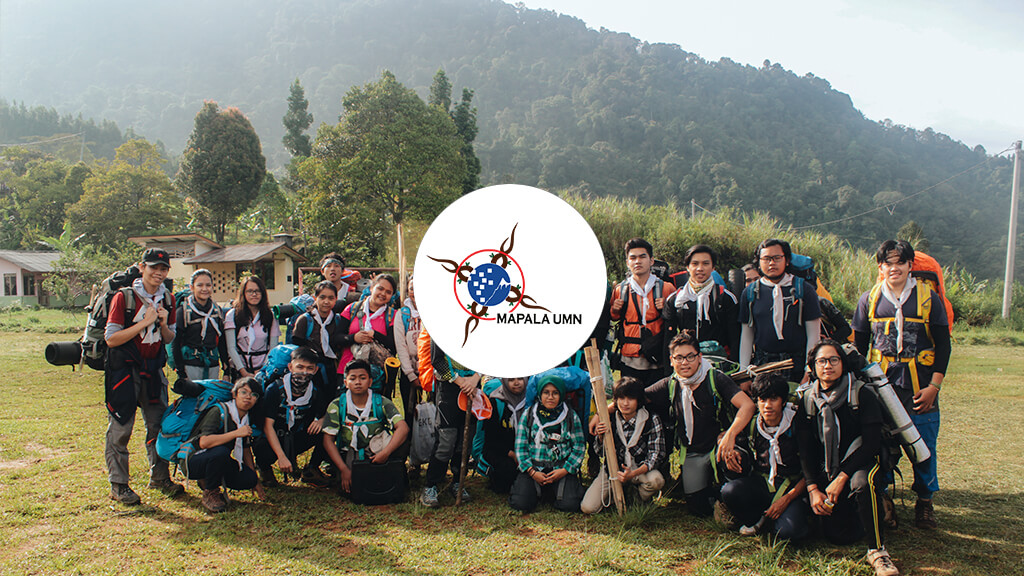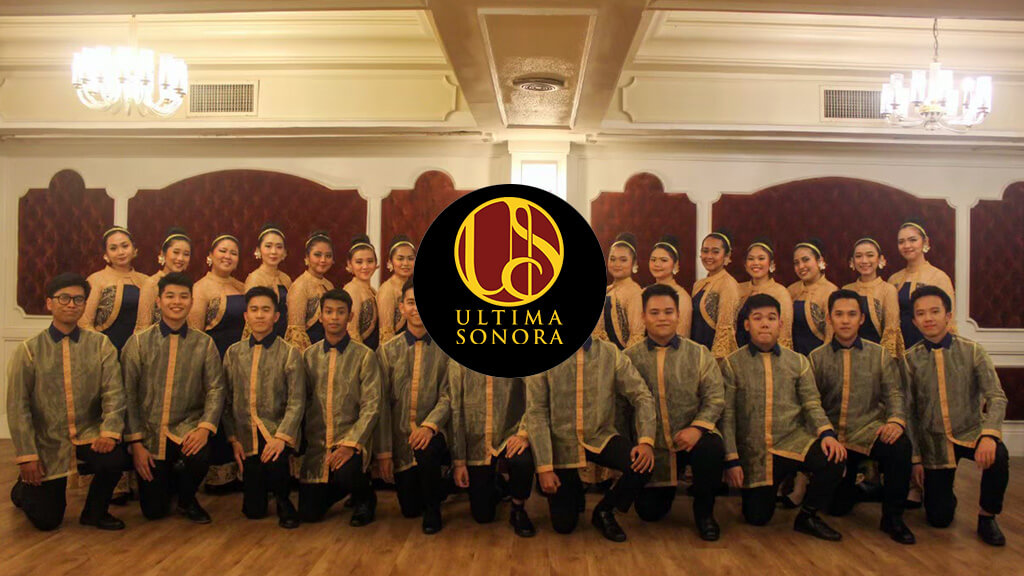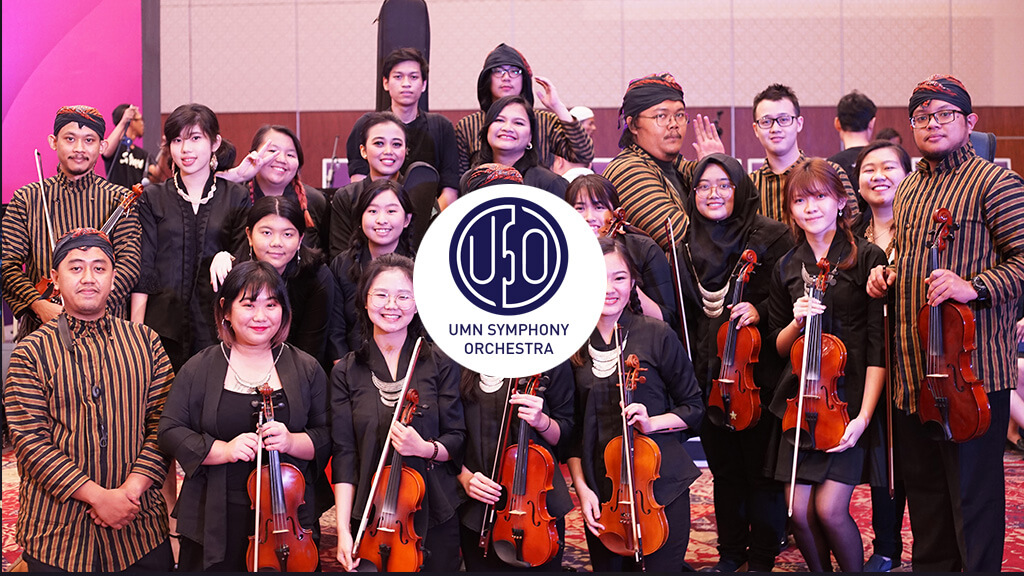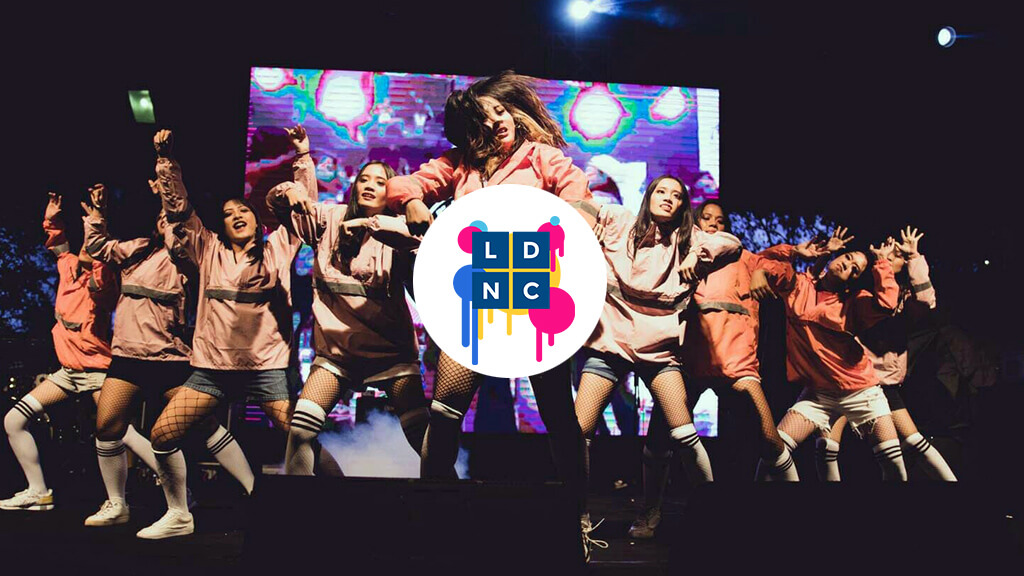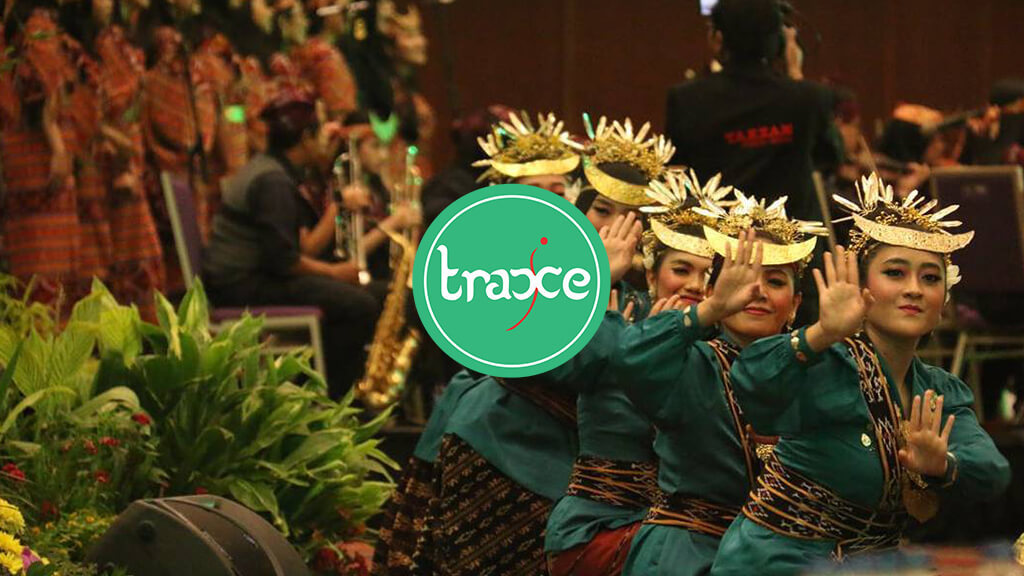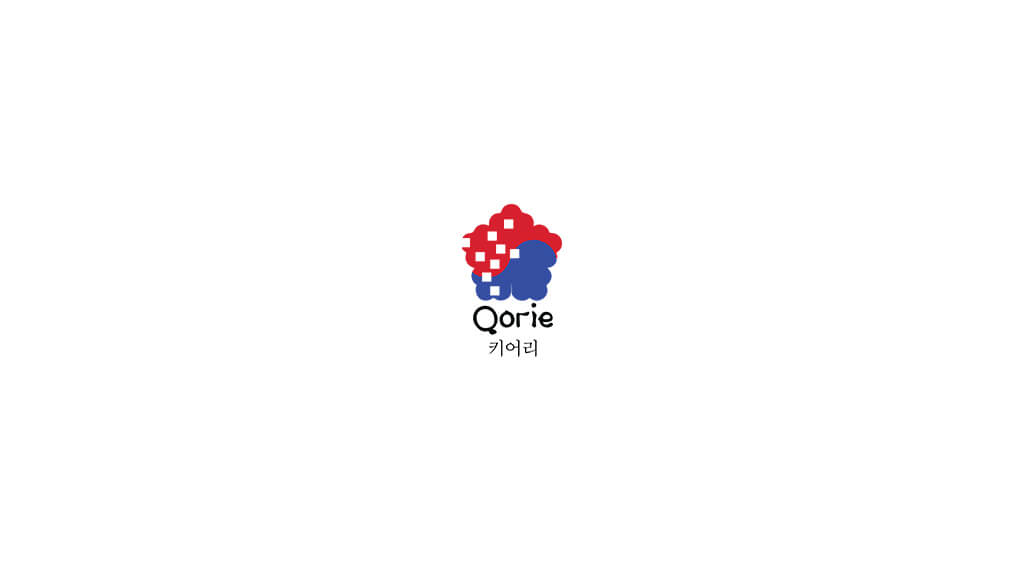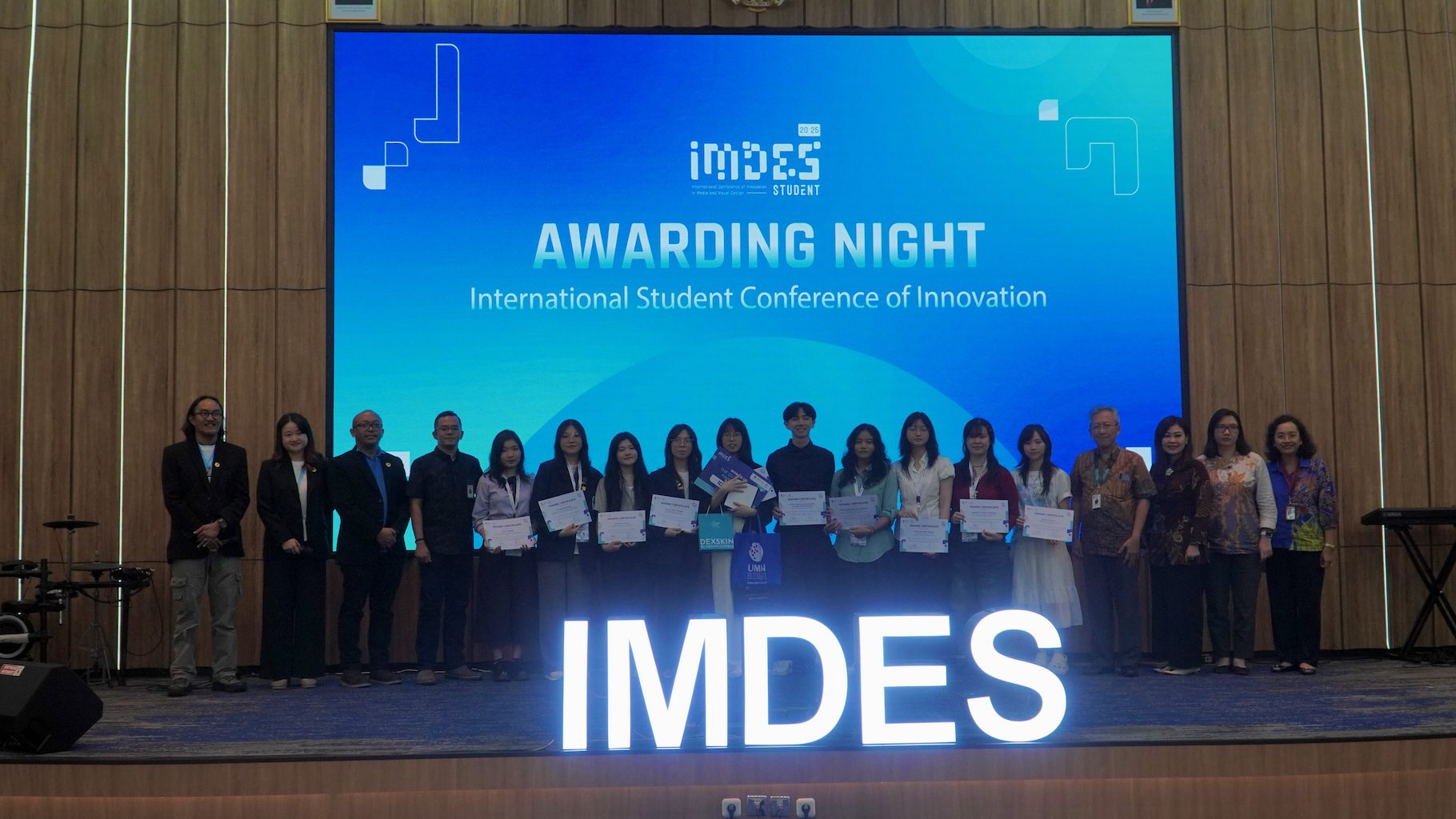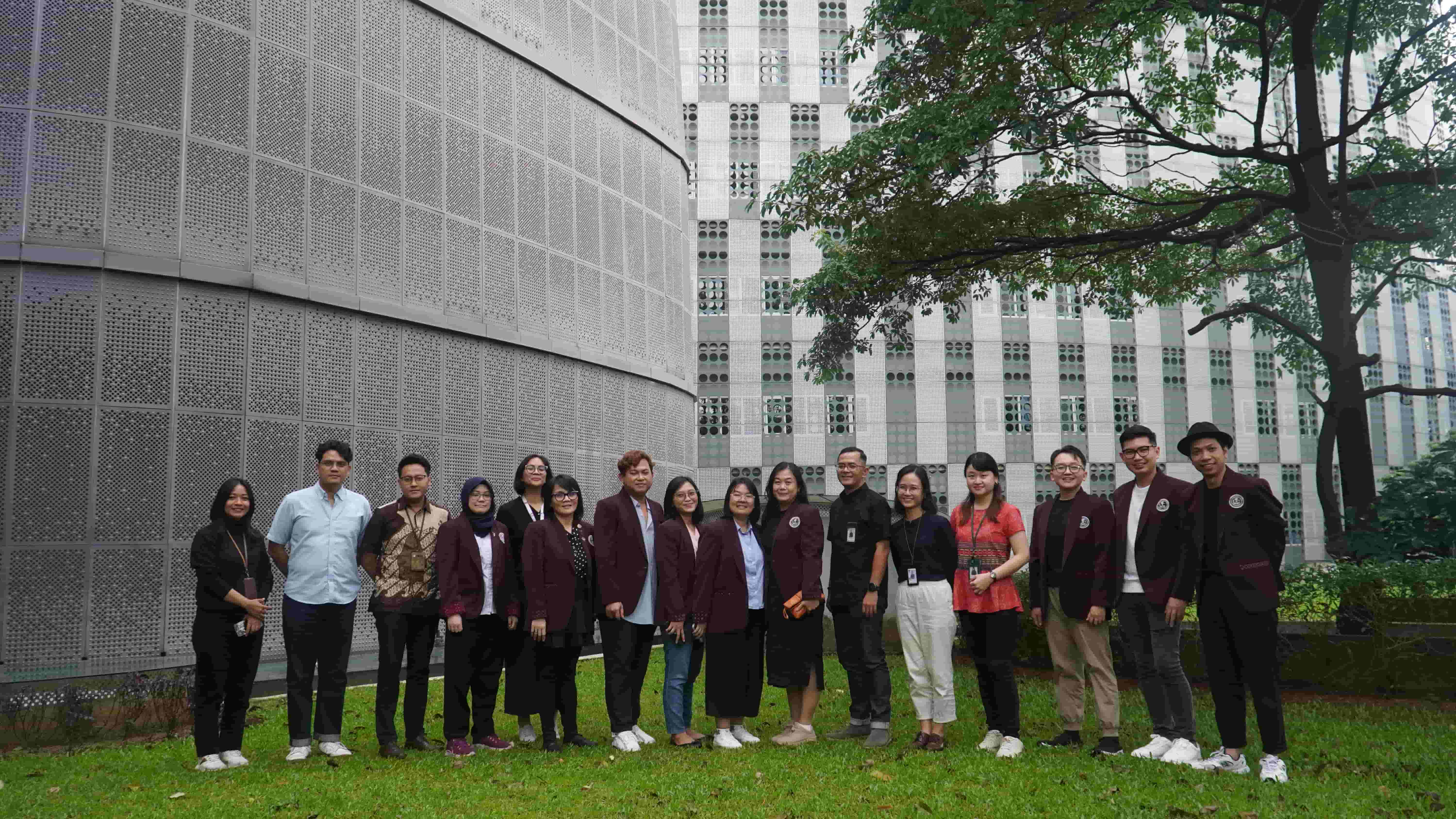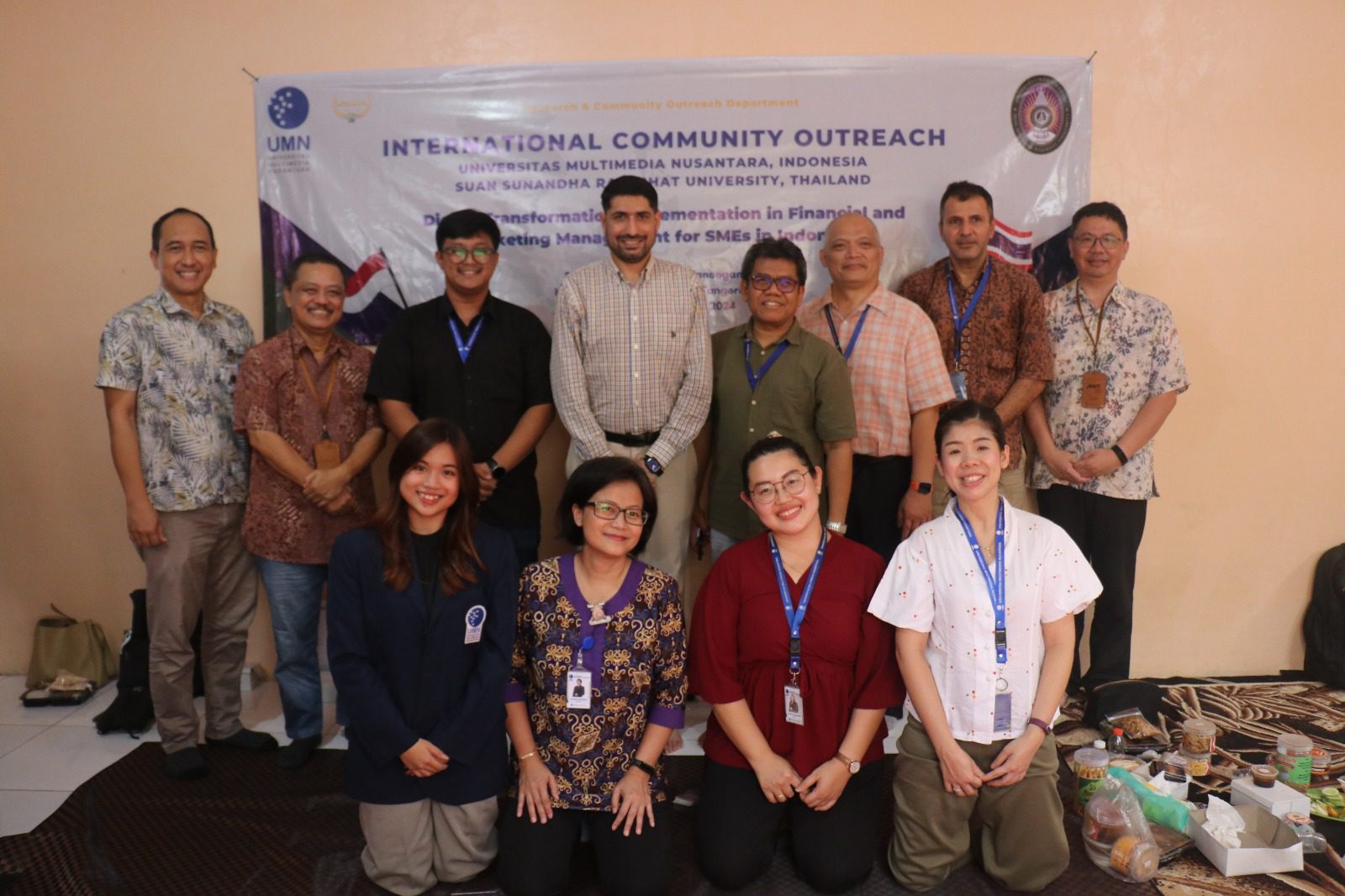Bachelor of
Journalism
(BOJ)
What is Journalism?
Journalism is a science that teaches how to produce content based on real events to be disseminated to various platforms. Students of Journalism Study Program will learn all forms of journalism (whether it is writing, audio, visual or audio visual) ranging from the process of planning, production, dissemination / publication, to monitoring the content on social media.
In today’s industrial era, a journalist does not only make news. UMN’s Journalism Study Program also provides opportunities for students to become content creators who can focus on producing content in accordance with topics of interest, for example, travelling to a certain place, sports matches, the current state of the environment, or any other topic that is out there. Students will learn how to build the content according to the audience they want to target.
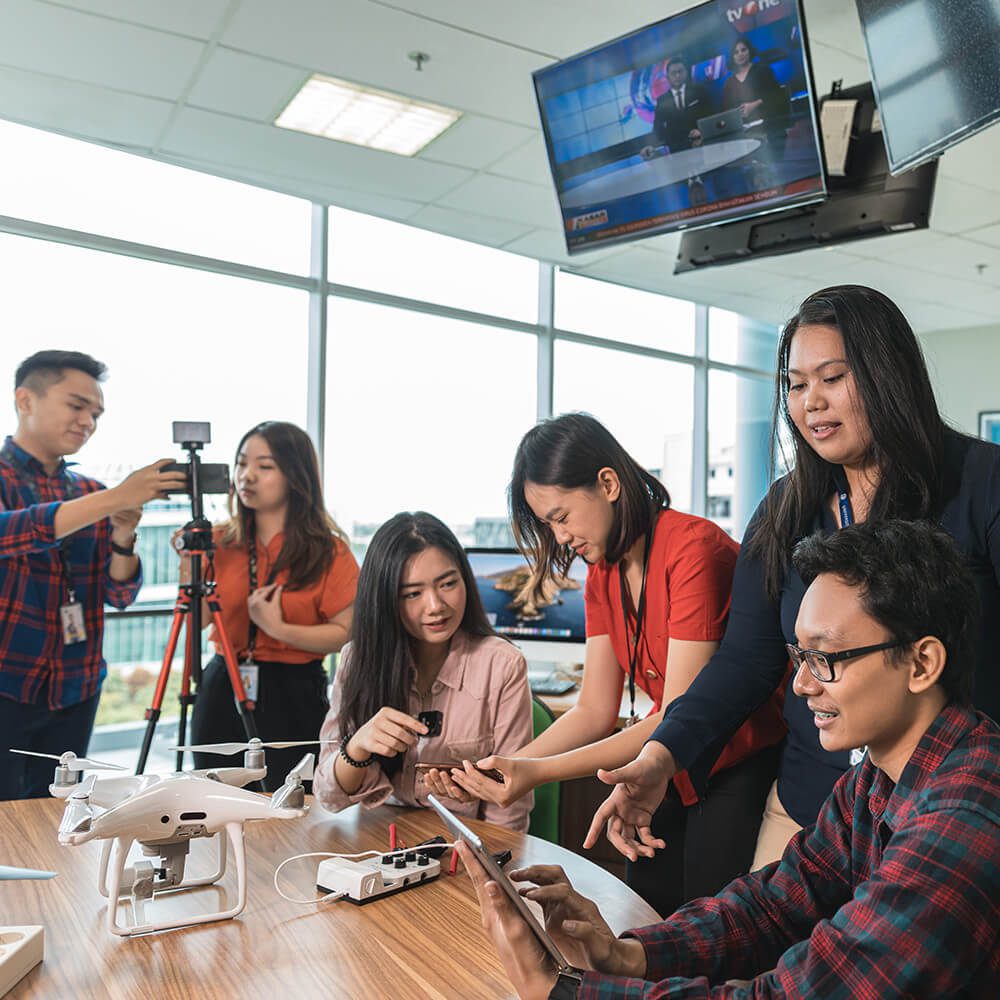
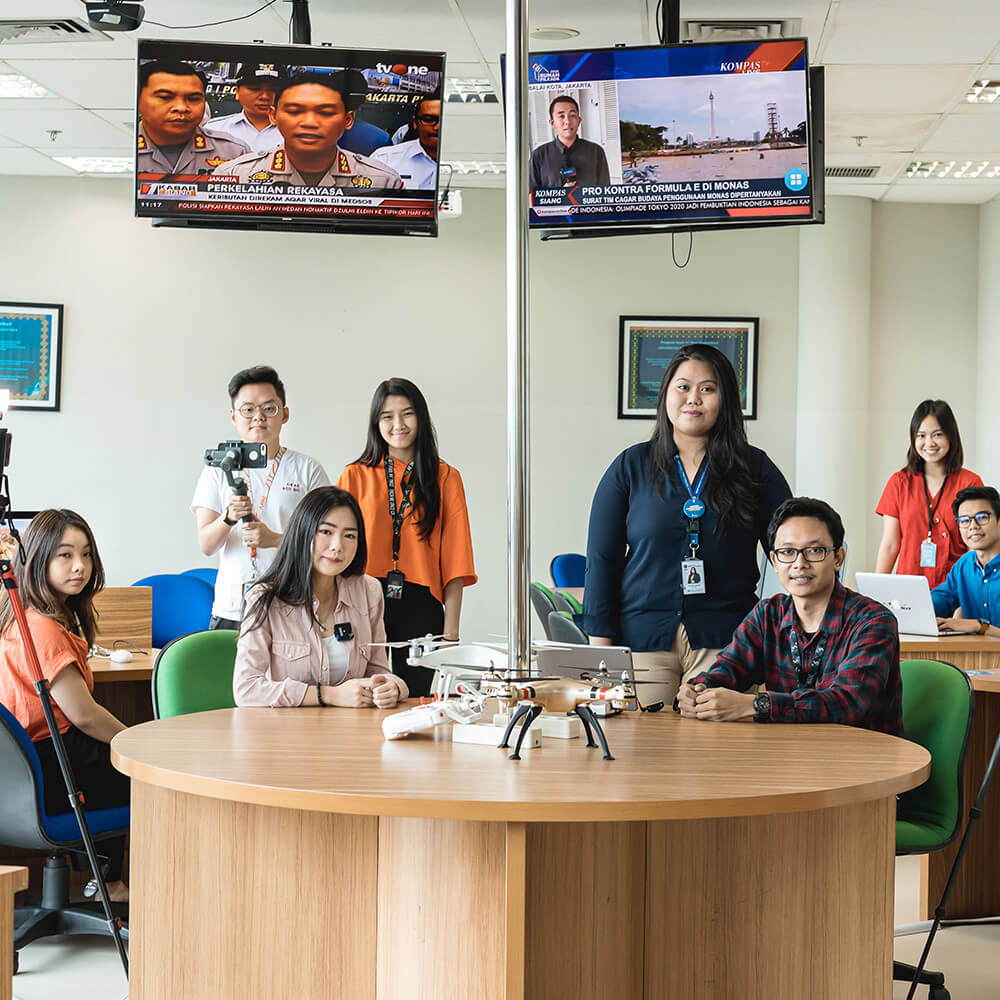
Why Choose
UMN’s Journalism?
Multimedia Nusantara University’s Journalism Study Program focuses on utilizing new technologies to learn new forms of journalism. Therefore, learning activities are also supported with adequate technology. Some courses are also tailored to the needs of the industry as well as the development of existing technologies, such as mobile and social media journalism courses that utilize the use of gadgets in producing and disseminating journalistic products through social media.
In addition, UMN’s Journalism Study Program also equips its students with the knowledge about hoax news (HOAKS) and ways to identify them through digital factchecking courses. Besides that, through web apps for journalism courses, students will also be taught how to create a website to be able to publish journalistic products that have been created independently.
Kompas Gramedia supports UMN in providing access to teachers from media industry who are experienced, able to provide knowledge about the current conditions of the media industry and serve a source for students to practice directly.
Alumni

Student’s Average GPA

Average waiting time

Employment and entrepreneur

Employee Satisfaction
Accreditation Table
| National Accreditation |
International Accreditation |
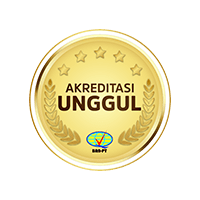 |
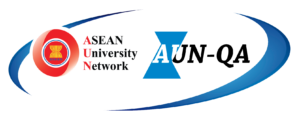 |
General Information
| Credits | 241.92 (ECTS) / 144 (SKS) |
| Education Type | Bachelor Program |
| Duration | 4 years |
| Language | Indonesia & English |
| Bachelor's Degree | Bachelor of Communication Science (S.I.Kom.) |
| Type of Program | Full time |
Vision & Mission
Vision
To become a Multimedia Journalism Undergraduate Study Program that is excellent in exploring new forms of journalism and producing graduates who are internationally minded, able to master the theory and practice in the field of journalism based on Information and Communication Technology (ICT), and possess entrepreneurial spirit, as well as noble character.
Mission
- Organizing an experiential learning process that has high quality and virtue, supported by professional teachers and curriculum that is in line with the development of journalism and ICT.
- Carrying out research programs in the field of multimedia journalism that contribute to the development of journalism.
- Carrying out community service activities related to the field of multimedia and journalism.
Career Prospect
Graduates of Journalism Study Program can work in the field of communication, journalism, or creative industries. Some of the graduates’ profiles can be seen below :
Reporter, announcer, News Anchor, Host Program, News Editor, Executive Produer, Camera Persons, Photojournalist, Script Writer, Content Writer, Columnist, Creative Writer, Creative Production, Publisher, Media Researcher and Analyst.
Further Study
Graduates of UMN’s Journalism Study Program can continue their studies in the field of communication, public relations, and other social sciences.
Partnership & Collaborations
UMN’s Journalism Study Program has been working with several media in Indonesia such as Kompas Gramedia Group, Tempo, SCTV, CNN TV, and other national media outlets to obtain resources and provide real experience for students in the media industry.
We have also networked with the Press Council and some communities such as the Alliance of Independent Journalists (AJI) and Jurnokoders in the creation of several programs related to journalistic learning.
In the international sphere, UMN’s Journalism Study Program collaborates with Google, especially in the Google News Initiative and the International Federation of Journalists (IFJ) in organizing different activities. UMN’s Journalism Study Program also collaborates with UNESCO that contributes to the curriculum used. In addition, we also cooperate in several other activities, one of which is our involvement in the implementation of world press Freedom Day.
Specialization in Journalism Program
Draft
Goals
To produce graduates that are highly competent in accounting and financing, understand the revision of Standard Akuntansi Keuangan (Financial Accounting Standards) that suit International Financial Reporting Standards (IFRS), gain ICT knowledge and orientation and are able to utilize ICT in undergoing the profession as accountants, are able to conduct external auditing to assess the appropriateness of a company’s financial statement or to become internal auditors to conduct internal evaluation and provide suggestion to improve the company’s performance according to the applicable rules under the code of Ethics for Professional Accountants
Curriculum
Students will gain all the main subjects of accounting like Financial Accounting, Cost Accounting, Management Accounting, Auditing, Accounting Information Systems, Taxation, Sector Public Accounting, Financial Accounting Standards, Financial Statement Analysis, Accounting theories equipped with Management, Economics, and ICT subject. Besides, students are given in-depth capabilities in auditing through 5 subjects, namely Audits Seminar, Audit Practice, Auditing Information Systems, Ethics and Corporate Governance, and Tax Accounting.
Career Prospects
External Auditor, Internal Auditor, Financial Accountant, Financial Analyst
Student Scolarship
UMN scholarship program is offered to high school students in 12th grade who have academic, sports, and artistic achievements while in 11th grade. In addition, UMN also offers the program to high school/vocational school students who won medals in the National and International Science Olympics. As a form of appreciation for the dedication of teachers and employees/ staff in educating the nation's children, UMN provides scholarships in the form of a 50% reduction in fees for teachers/principals and a 30% reduction in fees for children of the employees/staff in high schools/vocational schools (both public and private) who want to continue their education at UMN.
Entry Requirement
- High school graduate majoring in Science, Social Sciences or Languages
- Vocational school graduates of various majors.
Students are required to attend academic guidance meetings at least 3 times per semester. The schedule of the meetings will be provided by the respective academic supervisors. Students have to bring the academic guidance book for the meeting and they need to make sure that the academic supervisor signs it.
Continuing Education Department (CED) is an educational development program at Universitas Multimedia Nusantara (UMN) which is part of the Kompas Gramedia Group. We have various programs in language courses, human development, Testing Centers for national and international certifications, and training programs. UMN’s CED is designed to meet the needs of high school and college students, as well as the public and professionals.
Students are encouraged to find their own companies / agencies for their internships that align with the focus of the Strategic Communication Study Program. Information about available internships can be obtained from other students, social media, job fairs, advertisements in print or electronic media or even through the UMN Career Development Center (CDC).
To complete the Undergraduate Program (S-1) at Multimedia Nusantara University, students must prepare, present, and defend the thesis in front of the thesis examination board, in accordance with the provisions of the study program. The preparation of the thesis is done individually and the students can choose the supervisor directly provided that the selected supervisor agrees.
To complete the Undergraduate Program (S-1) at Multimedia Nusantara University, students must prepare, present, and defend the thesis in front of the thesis examination board, in accordance with the provisions of the study program. The preparation of the thesis is done individually and the students can choose the supervisor directly provided that the selected supervisor agrees.
…..
….
….
(DRAFT)
DRAFT
(DRAFT)
(DRAFT)
(DRAFT)
To support the learning process, umn provided a complete and sophisticated college facility, according to industrial standards. Through the existence of the facility, students have been invited to be close to the industrial world since sitting in college and to have competence that matches the needs of the industry. That way, it will make it easier for umn students to find jobs, even before graduation.
Extracurricular Student Activities
In order to help students explore and develop their non-academic potentials, UMN also provides a variety of extra-curricular activities for students which is locally called UKM, Student Activity Unit.

SEE OTHER
UMN’S STUDENT ACTIVITIES
Rekapitulasi Penelitian Internal - Jurnalistik
Rekapitulasi Penelitian Hibah DIKTI - Jurnalistik
Rekapitulasi Penelitian Internal - Jurnalistik
Rekapitulasi Penelitian Hibah DIKTI - Jurnalistik
Daftar Kegiatan PKM Dosen
Rekapitulasi Inovasi Hak Cipta - Jurnalistik
TESTIMONIAL
CERTIFICATION
Information Literacy
Information literacy is an ability that individuals have in determining, searching, managing and evaluating information effectively and efficiently. This training is open to UMN active students. For further information, please contact: library.umn.ac.id
“During my time in UMN’s Journalism Program, all the courses taught provided a great base for the future in media industry. In addition, I also feel that UMN educates its students to be able to adapt and communicate in various walks of life, which is certainly very useful for me to apply in my current world of work.”
David Caessarre
Alumni Jurnalistik 2015
Creative Officer di Narasi TV
Journalism
“Multimedia Nusantara University’s Journalism Study Program focuses on utilizing new technologies to learn new forms of journalism. Therefore, learning activities are also supported with adequate technology. Some courses are also tailored to the needs of the industry as well as the development of existing technologies, such as mobile and social media journalism courses that utilize the use of gadgets in producing and disseminating journalistic products through social media.”

